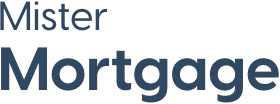
In 2025, the NHG limit will rise from €435,000 to €450,000. The one-time guarantee commission fee will decrease from 0.6% to 0.4%, allowing first-time buyers to keep more money in their wallets.
The NHG limit for homes with energy-efficient upgrades will increase to €477,000. For caravans, the limit will rise from €166,000 to €172,000, and with energy-saving measures, it will go up to €182,320.
The government wants to produce 100,000 homes per year as soon as possible, two-thirds of which are affordable. The threshold for affordable owner-occupied homes will be indexed according to the consumer price index (CPI), just like last year. The upper threshold for affordable owner-occupied homes will be €405,000 in 2025, up from € 390,000 in 2024.
The property transfer tax for residential mortgages remains at 2%. However, the exemption for first-time buyers will increase to €525,000. Individuals aged 18-35 who purchase their first property valued below €510,000 are exempt from the transfer tax. Starting in 2025, this exemption will rise to €525,000.
The property transfer tax for real estate investors will remain at 10.4% in 2025 and will change to 8% in 2026. So, being patient can save you fees.
As of January 1, 2024, the impact of student loans on former students' maximum borrowing capacity is now assessed based on the duration of their loans. For example, if you have a student debt of €30,000 and have already repaid €5,000, only the monthly payment on the remaining €25,000 will be considered.
This results in a lower monthly payment, allowing you to qualify for a higher mortgage. These changes will remain in 2025 with no further changes.
In 2025, the maximum amount you can borrow for a mortgage remains the same as in 2024. You can still borrow up to 100% of the property's market value.
In 2024, new rules were introduced that factor energy labels into mortgage calculations. Under these rules, the higher the property's energy label (e.g., A++++ or A, B), the more you can borrow. On the other hand, if you purchase a property with a lower energy label (E, F, G), your borrowing capacity is reduced. No major changes or adjustments regarding the energy labels are expected in 2025.
Since 2024, single people have been allowed to borrow an extra amount on top of the maximum mortgage. In 2025, this limit increased from €16,000 to €17,000. This change aims to give single buyers a better chance in the housing market, especially where dual-income households often have a larger budget.
In 2025, households may qualify for higher mortgage amounts compared to 2024 due to a projected 4.3% wage increase, which boosts borrowing capacity. According to Nibud's Mortgage Standards 2025 advisory report, families with annual incomes up to €60,000 could see an increase in their borrowing capacity even if their income remains unchanged.
In 2025, Dutch parents can continue to help their children buy a home through tax-free gifts. A one-time increased exemption allows parents to gift up to €32,195 per child (for children up to 40 years old). Additionally, parents can give their children an annual tax-free gift of up to €6,713, regardless of age. This yearly gift can help cover monthly housing expenses, making payments more manageable.
The mortgage interest deduction will still be available in 2025, letting homeowners deduct part of their mortgage interest on their tax returns.
Schedule a complimentary introductory call with our mortgage specialists. We specialize in mortgages for expats and are dedicated to navigating you through the home-buying process.
-
Access to a trusted network.
-
Highly competitive rates and flexible terms.
-
Guidance through the entire mortgage process.
-
English translations of bank documents are shared.

- 100% Independent Advice




